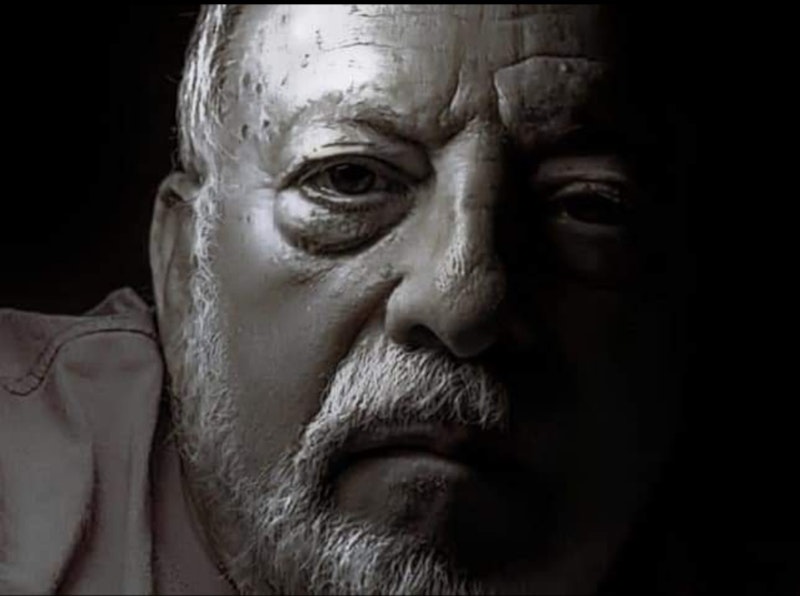Before getting back to the interview with George Wallace, I’d like to tell everyone that, besides upcoming readings in NYC and Saint Augustine, Florida, he’ll be reading this coming January in Paris, France. Please check out.
Tom DiVenti: Can you elaborate on how your approach to poetry has changed over the years?
George Wallace: I think that I can break down the subject of what it means to be a poet into a couple of components. One is expressing myself about the organization of words. That's a particular component that's different from standing in front of other people and reading my work. It's more of a performance thing. And the next part of it is my understanding of my communal role in the ecology of poets. In that community of poets, I have a role to play that's entirely different, but something I accept fundamentally as what I do. I could talk about each one of those things in what could be someone's matrix of what they are as a poet. Is it someone who seeks fame and glory? I've never thought about it in those terms or pursued it in those terms, so I can't really speak to that.
As a person who organizes words into works of art, how have I changed from being a young poet to what I am today? I've mastered my basics; I've extended my range, my vocabulary, and my arsenal of techniques; and I've managed to avoid repeating myself or running out of ideas, for a couple of reasons. One really important reason is because of the way that I approach writing, which is a process of something that I already feel. Every day that I write a poem is an exploration. I'm not searching for a topic; I don't need a trigger or idea to write about, so I'm not limited by that in my brain or heart. My brain and heart are open-ended organs, allowing me to pursue my interaction with the world. Because of that, I’ve never had writer's block or felt like I was repeating myself.
TD: And you don't spin your wheels, there’s no doubt about it.
GW: No. William Stafford told me once that his approach to writing poetry and evaluating a poem was this. In the morning, he’d write a poem and put it in a basket in the kitchen. A basket hanging on the wall. His son would come downstairs, read the poem, and put it back in the basket. Then, his wife would come downstairs, and she’d read the poem and put it back in the basket. Then, at some point over breakfast, they’d tell him what they thought of the poem, and this is a near quote or very close paraphrase. Stafford said that if they didn't like the poem, I just lowered my standards. Who’s the arbiter? Are you writing for critics, or are you writing for an audience that has legitimate, superficial, or even objectionable points to give you feedback on, or are you writing for your own internal editor?
TD: Hopefully, you're writing for yourself.
GW: You're writing for your own editor inside. I've written stuff, and I go, you know, I don't know, and I never share it. I've done that at times, but that's okay. My internal editor says, No way, dude!
TD: You're heading in the wrong direction; try another avenue.
GW: Do a different one, you know, let's talk in mechanics about what performance art is because writing a poem is a performance. You’re creating something to the best of your ability at that moment in time. Whether it's a fresco, sculpture, or watercolor, whatever it is, it doesn't have to be perfect every time, because if you're going to engage in crafting art over the course of your life, sometimes you're going to approach perfection. You’re going to push your boundaries, and sometimes you're not going to push them so hard, and other times you're going to push them well. But you're never going to reach that perfect poem.
TD: It's like the song “When I Write My Masterpiece,” and somehow you never do.
GW: There's a mathematical graph for that if you take any graph, say an algorithm or something like that, where it's a curve that's bending up to infinity. But it never really hits the north or south parts of the graph. You approach perfection, but you never really hit it. That’s what a performing artist does—they do it as best they can. They’re up there on stage singing, like, say, “O Mio Babbino Caro,” out of the opera or something, and they sing to the best of their ability. If they don't get their applause, and then they say, “Whatever,” they're satisfied or dissatisfied, but you put it behind you because it's done. Your task is to get up the next day and continue to be a performing artist.
TD: Did you ever do the poetry slams in the 1980s and 90s?
GW: I thought the whole competition thing was very high school, like a yearbook. Who’s the prettiest boy in class? It was BS to me.
TD: I felt the same way. Then you get the golden cash prize at the end and possibly the adoration of your hardcore fans and friends.
GW: It's completely subjective whether the people judging have the basis to judge. Whether it's a popularity contest, the people in the audience go, “Yeah, yeah,” “Fuck you,” or “How stupid is this?” What kind of measure is that of a poem structurally? What that tried to do was create fame to get some traction with popularity and poetry. That was the objective in doing that—I mean, for what, so that a handful of people who put those things together could become grandmasters of poetry? And that somehow now we're able to commodify it for their own benefit? It wasn't about that. It wasn't about to be used for that purpose.

